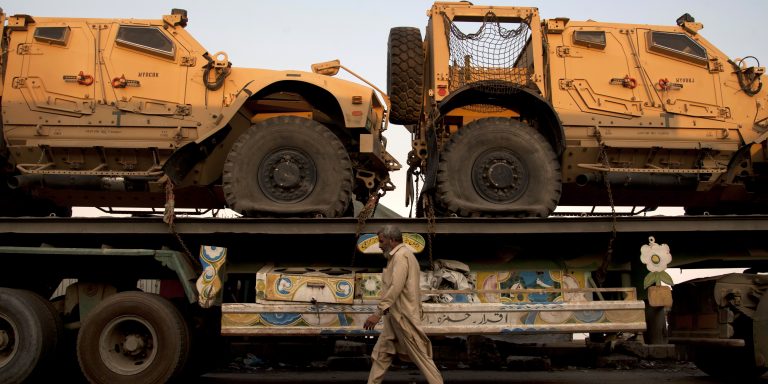INTELBRIEF
January 9, 2018
IntelBrief: Afghan Campaign Threatened by U.S.-Pakistan Tensions

- On January 1, President Donald Trump denounced Pakistan on his Twitter feed, saying the country gave ‘safe haven to the terrorists we hunt in Afghanistan’ while giving the U.S. ‘nothing but lies and deceit.’
- On January 4, the U.S. suspended $1.9 billion in military and counterterrorism support for Pakistan.
- Pakistan plays a crucial role supporting the massive military logistics effort required by the U.S. campaign in Afghanistan.
- Escalating tensions between Washington and Islamabad come as the U.S. prepares to deploy hundreds of additional military trainers to Afghanistan, raising troop levels close to 16,000 in the first months of 2018.
Relations between the United States and Pakistan have been both complicated and tense in the years following al-Qaeda’s 2001 attacks on the Pentagon and World Trade Center. The U.S. asserts, with considerable justification, that Pakistan’s tribal areas serve as a sanctuary for terrorist groups including the Taliban, al-Qaeda and the Haqqani Network—which makes ‘winning’ the war in Afghanistan essentially impossible. For its part, Pakistan asserts, with considerable justification, that it has borne a tremendous burden in fighting terrorism on its own soil.
As 2018 gets underway, relations between Washington and Islamabad appear to have sunk to their lowest mark in years. On January 1, in the year’s first foreign policy statement from the White House, President Trump tweeted the following: ‘The United States has foolishly given Pakistan more than 33 billion dollars in aid over the last 15 years, and they have given us nothing but lies and deceit, thinking of our leaders as fools. They give safe haven to the terrorists we hunt in Afghanistan, with little help. No more!’
Following that tweet, on January 4, the U.S. announced it was suspending $1.9 billion in aid and assistance for Pakistan. $1 billion of that sum had been earmarked for military equipment, while the remaining $900 million was intended to reimburse Pakistan’s military and security services for counterterrorism operations. While the State Department specified that the payment had simply been suspended, President Trump later tweeted that perhaps it was a ‘good idea’ to use all the money allocated for Pakistan on infrastructure projects in the U.S. Meanwhile, on January 8, a Pentagon spokesman told reporters that in order for aid to be resumed, ‘Taliban and Haqqani leadership and attack planners should no longer be able to find safe haven or conduct operations from Pakistani soil.’
The conflict between the two often contentious allies comes at a particularly troublesome time for U.S. military operations in Afghanistan. The longest war in U.S. history—now approaching its 17th year—is both a difficult counterinsurgency campaign and a massive military logistics challenge. U.S. operations in landlocked Afghanistan depend on air, sea and land routes that either connect with or go through Pakistan for supply. According to U.S. officials, troop levels in Afghanistan could rise to close to 16,000 this year, following the deployment of some 3,800 soldiers last fall, further stressing the supply chain.
While leading Pakistani politicians have denounced the aid suspension, the Pentagon reports that there are no indications, as yet, that supply lines running through Pakistan will be curtailed or cut. Still, once a government responds with face-saving measures when confronted with foreign insults, complex issues become far more difficult to resolve. The current crisis is the latest event in a fraught relationship that goes back decades. However, given the regional crises in which both countries have major stakes, Washington and Islamabad will likely have to resolve this latest conflict so their working relationship can go on.
For tailored research and analysis, please contact: info@thesoufancenter.org
[video width="960" height="540" mp4="https://thesoufancenter.org/wp-content/uploads/2018/01/Final-Edit-1-105.mp4" poster="https://thesoufancenter.org/wp-content/uploads/2018/01/AP_765499955429.jpg"][/video]